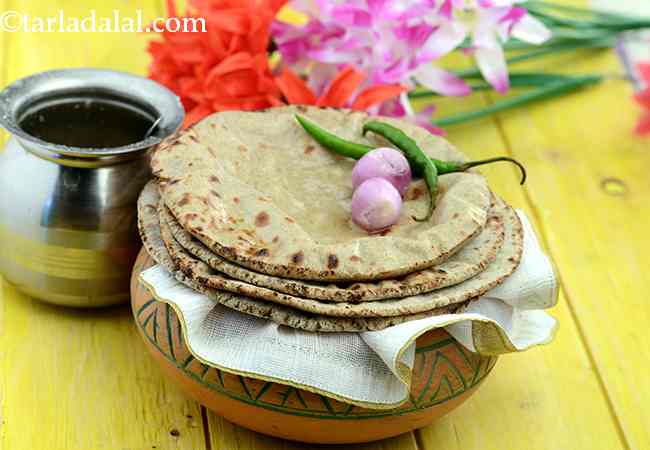See Masoor Dal with Spinach recipe. Masoor dal with spinach, the unbeatable combination of masoor dal with spinach nourishes your body with proteins, iron and folic acid. Tomatoes and amchur powder lend a nice tangy flavour to the dal. Needless to add, this is a super-healthy recipe as protein-rich dals are an indispensable part of our daily diet! Serve it hot with rotis or rice to make a homely and satisfying meal. If you like masoor dal then do check out our recipes using masoor dal, it has recipes for snacks, soups, main course etc. Enjoy how to make Masoor Dal with Spinach recipe with detailed step by step photos and video below.
Is Masoor Dal with Spinach healthy?
Yes, this is healthy. But restrictions apply to some.
Let's understand the Ingredients.
What's good.
1. Masoor Dal (split red lentils), Whole Massor : 1 cup off cooked Masoor dal gives 19 grams of protein. Being rich in Phosphorus it works with Calcium to build our bones. Whole Masoor or masoor dal is rich in Folate, Vitamin B9 or Folic Acid which helps your body to produce and maintain new cells, especially red blood cells. Masoor dal is is good for diabetics and a healthy heart. See detailed 10 health benefits of masoor dal.
2. Spinach (Palak) : Spinach is one of the richest plant sources of Iron and it should be part of a healthy diet for everyone. Raw spinach is very rich in insoluble fibre, 25% having soluble fiber and 75% insoluble fiber. Spinach is good for the heart, diabetics and eyes. Read this on the 17 benefits of spinach and why you should eat it.
3. Onions (pyaz, kanda) : Raw onions are a very valuable source of vitamin C – the immune building vitamin. Along with other phytonutrients from onions, it helps to build WBC (white blood cells) which serves as a line of defence against illness. Yes, it’s a source of many antioxidants, the most important one amongst them being Quercetin. The quercetin which promotes production of HDL (good cholesterol) and lowers total cholesterol in the body. The sulphur in onions act as a blood thinner and prevents blood clotting too. This in turn would lower blood pressure and good for heart, diabetics. Read the benefits of onions.
4. Tomatoes : Tomatoes are extremely rich source of Lycopene. Tomatoes are a powerful antioxidant, super rich in Vitamin C, good for heart. Tomatoes are a Pregnant women's friend and are rich in Folate or Folic Acid which helps your body to produce and maintain new cells, especially red blood cells. Read about 13 amazing benefits of tomatoes.
Can diabetics, heart patients and over weight individuals have Masoor Dal with Spinach?
Yes, this recipe is good for diabetics, heart and weight loss. We suggest you use peanut oil in the recipe as it has higher MUFA. Whole Masoor or masoor dal is rich in Folate, Vitamin B9 or Folic Acid which helps your body to produce and maintain new cells, especially red blood cells. Masoor dal is is good for diabetics and a healthy heart.
Dal + Roti
Combine Masoor dal with bajra roti, jowar roti, radish nachni roti recipe , basic ragi roti recipe, and whole wheat roti, whole wheat bhakri recipe to make a healthy combination. Note that when you combine any dal with any cereal like bajra, jowar, ragi, buckwheat, barley or whole wheat to enhance the protein value.

Bajra Roti
Can healthy individuals have Masoor Dal with Spinach?
Yes.
Masoor Dal with Spinach is high in
1. Folic Acid : Folic acid is an essential vitamin required throughout pregnancy.
2. Vitamin C : Vitamin C is a great defence against coughs and colds.
3. Phosphorous : Phosphorous works closely with calcium to build bones.
4. Vitamin B1 : Vitamin B1 protects nerves, helps in carbohydrate metabolism, prevents heart diseases and helps produce red blood cells.
5. Vitamin A : Vitamin A is crucial for healthy vision, cell growth and healthy skin.
Note : a recipe is deemed high in a Vitamin or mineral if it meets 20% and above the recommended daily allowance based on a 2,000 calorie diet.
How to burn 184 calories that come from Masoor Dal with Spinach?
Walking (6 kmph) = 55 mins
Running (11 kmph) = 18 mins
Cycling (30 kmph) = 25 mins
Swimming (2 kmph) = 32 mins
Note: These values are approximate and calorie burning differs in each individual.